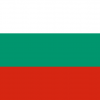Ireland - National Digital Decade strategic roadmap
The Ireland strategic roadmap for the Digital Decade developed by the Department of Enterprise, Trade and Employment of Irish Government sets out the strategic goals to be achieved by 2030, monitoring their achievement, and the target paths and key measures have been developed.
The report uses the data in the Digital Decade Report 2023 on the National Base Value of the Digital Decade Targets, the EU baseline value for Digital Decade Targets in 2023 and the EU target value for 2030.
70% of adults have at least basic digital skills, well above the EU average of 54%. Provided a positive trend is maintained, Ireland could make a positive contribution to reaching the 2030 EU target of at least 80% of the population having at least basic digital skills. A similar trend is observed for women with at least basic digital skills (72.6% compared to the EU average of 59%)3. The country also scores higher than the EU average for individuals with above basic digital skills (40% in Ireland versus 26% in the EU) and at least basic digital content creation skills (77% compared to the EU average of 66%). The proportion of internet users is at 95%, thus more people use internet in Ireland than in other Member States on average.
The Roadmap for Ireland consists of 4 chapters:
- Skills
- Digital Infrastructure
- Digital Transformation of Businesses
- Digital Public Services
Priorities for the development of digital skills
Ireland is trying to ensure that its skills policy is focused on developing digital skills at all levels, including high-level digital skills, digital skills for the labour market and digital skills for society. This vision is reflected in its National Digital Strategy, where the Dimension 3 is dedicated to skills with two main objectives:
increasing the number of learners graduating with higher-level digital skills to over 12 400 (around 0.05% of the current workforce), with the ambition to further increase digital skills provision in the following years;
increasing the share of adults with at least basic digital skills to 80%.
Ireland continues to boost digital skills development across the entire education system, in schools, further education and training, higher education, and lifelong learning in general. It also continues to implement ambitious reforms under its RRP.
Measures contributing to the achievement of the target
Measure 1: Adult Literacy for Life (ALL) Strategy
Measure 2 – Digital Strategy for Schools
Measure 3 – Digital Skills in Early Learning and Care, Primary School, and Junior/Senior Cycles
Measure 4 – New Literacy, Numeracy and Digital Literacy Strategy
Measure 5 – STEM Education Implementation Plan
Measure 6 – OECD/Ireland Review of the National Skills Strategy
Measure 7 – Development of a Single Portal for Skills and Guidance Information
Key challenges to overcome
The challenge in this area is to providing digital skills needs across the economy and society, including to foster digital inclusion. On Digital Skills, the Government is conscious that despite Ireland’s above average scores across many of the indicators in the area, it is imperative that need continue to provide the digital skills needed to support the specific needs of the labour market across all areas of the economy. Although Ireland are excelling in the provision of highly skilled ICT graduates at 8.6%, over double the EU average of 3.9%, further increases are required to ensure that our workforce is well-equipped to face the continuous rapid changes brought about by global digitalisation.
The strategic policy frameworks for skills development in Ireland and the National Skills Strategy contain targeted objectives to improve the identification, provision and support for digital skills development from pre-school years through to adult education and lifelong learning. Initiatives currently underway in this area exist for all cohorts of learners.
Strategy Details
The allocated or planned budget is indicated on the Roadmap for each of the measures separately.
The Roadmap has been developed by the Department of Enterprise, Trade and Employment of Irish Government in cooperation with other ministries, including industry, non-governmental, and academic organisations.






